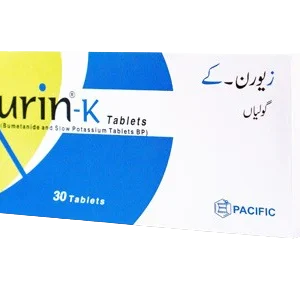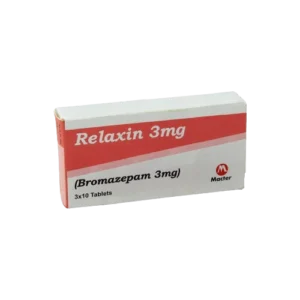Description
How To Use
- Take this medicine by mouth.
- Take this medicine with or without food.
- Take one dose of this medicine, every day.
- Swallow it as a whole, do not crush or chew the medicine.
- Take it at the same time to help you remember.
- Or use it exactly as instructed by your doctor.
Expert Advice
- Take with or without meals.
- To avoid stomachache, take with meals.
- Take missed dose as soon as you remember and next dose in 24 hours.
- Contact prescriber if there is unrelieved headache, vomiting, weight gain, palpitations, or difficulty in breathing.
- Check blood pressure regularly.
Primary Uses
Angina and Hypertension
Indications
This medicine is used to treat hypertension (high blood pressure), myocardial ischemia (decreased blood supply to heart muscle) associated with stable (chest pain triggered by activity), or vasospastic angina (chest pain triggered with vasospasm of coronary artery).
Side Effects
Patients using this medicine may commonly experience headache, edema, fatigue, nausea, dizziness (lightheadedness), flushing (reddening of the skin), rashes, and gingival hyperplasia (overgrowth of gum). Patients may rarely experience alopecia (spot baldness), pruritus (itching), abdominal and back pain, hyperglycemia, increased urination, palpitations, and GI (stomach) upset.
Warnings
This medicine is not safe to be administered in pregnant females. Consult your doctor for more information.
This medicine is not recommended for lactating females. Consult your doctor for better advice.
This medicine doesn’t usually affect your driving ability. However, avoid driving until you know how this medicine affects you.
Use this medicine cautiously in liver patients. Dose adjustment is required. Consult your doctor for more information.
Use this medicine cautiously in kidney patients. No dose adjustment is required. Consult your doctor for more information.
Avoid alcohol consumption when using this medicine. Consult your doctor for more information.
Before using this medicine, inform your doctor about your complete medical history; especially of heart disease, liver disease, or low blood pressure. Inform your doctor about all your current medicines. Do not quit this medicine without informing your doctor. Do not share this medicine with anyone.
Contraindications
This medicine is contraindicated in patients having history of cardiogenic shock (inability of heart to pump enough blood), aortic stenosis (narrowing of aortic valve opening), unstable angina (chest pain triggered by minimum or no activity), severe hypotension, unstable heart failure following MI, and hypersensitivity to dihydropyridines.
FAQS
Which medicines should be avoided with Amlodidpine?
As per FDA recommendation, simvastatin dosage should be limited to 20 mg daily while taking amlodipine. Also, all the CYP3A4 enzyme inhibitors like diltiazem, ketoconazole, itraconazole & ritonavir should be avoided while taking amlodipine.
I have been experiencing swelling in hands and foot since I started using the medicine. I am concerned whether this swelling will persist? You don’t need to worry about the swelling, as it is one of the very common adverse effects of the drug. This will go off once you withdraw its use. But you still need to consult your physician if the condition is getting worse.
When is it safe to discontinue the medicine?
You are not advised to do so abruptly nor are you supposed to make this decision by yourself. Consult with your physician, who will most probably advise for a gradual withdrawal. This is done to avoid the chest pain and relapse of high blood pressure, which is usually observed in such scenarios.
In what forms is the medicine available?
It is available in tablet, drops and I/V (intravenous) forms.
I am a patient of dialysis and have a history of getting treated for hepatitis C too. So, is the medicine safe for me?
No, the drug is not safe for any kind of kidney or liver disease. Consult your physician for an alternative.
What is the best time to take this medicine?
It doesn’t really matter at what time of the day you take amlodipine, but it is best to take it at the exact time every day, for more even blood levels & more effectiveness of the medicine.
Why taking this medicine at night is useful?
New research shows that administering blood pressure medicines at bedtime effectively helps to reduce your risk of illness or death due to blood vessel & heart disease. Timings are important as BP follows a daily rhythm. It is high during the day & falls at nighttime.
How much does this medicine help reduce blood pressure?
It is seen that titration of amlodipine from 5-10 mg every day in patients not responding to the treatment with 5 mg dose showed significant decrease in BP.
How does this medication work?
This medication works by relaxing the blood vessels so that blood can flow easily.
Is this medication hard on the kidneys?
If this medication continues for a long time, it may damage the blood vessels of heart and kidneys.
Can I eat bananas while taking this medicine?
Avoid potassium-rich foods like bananas, oranges, and green leafy vegetables as this medicine already raises potassium concentrations in the body.
Will this medicine make me sleepy?
Yes, this medicine might make you sleepy. Using alcohol along with this medicine will worsen the symptom. Avoid driving.
Can children take this medicine?
This medicine should not be given to a child younger than 6 years.






Reviews
There are no reviews yet.